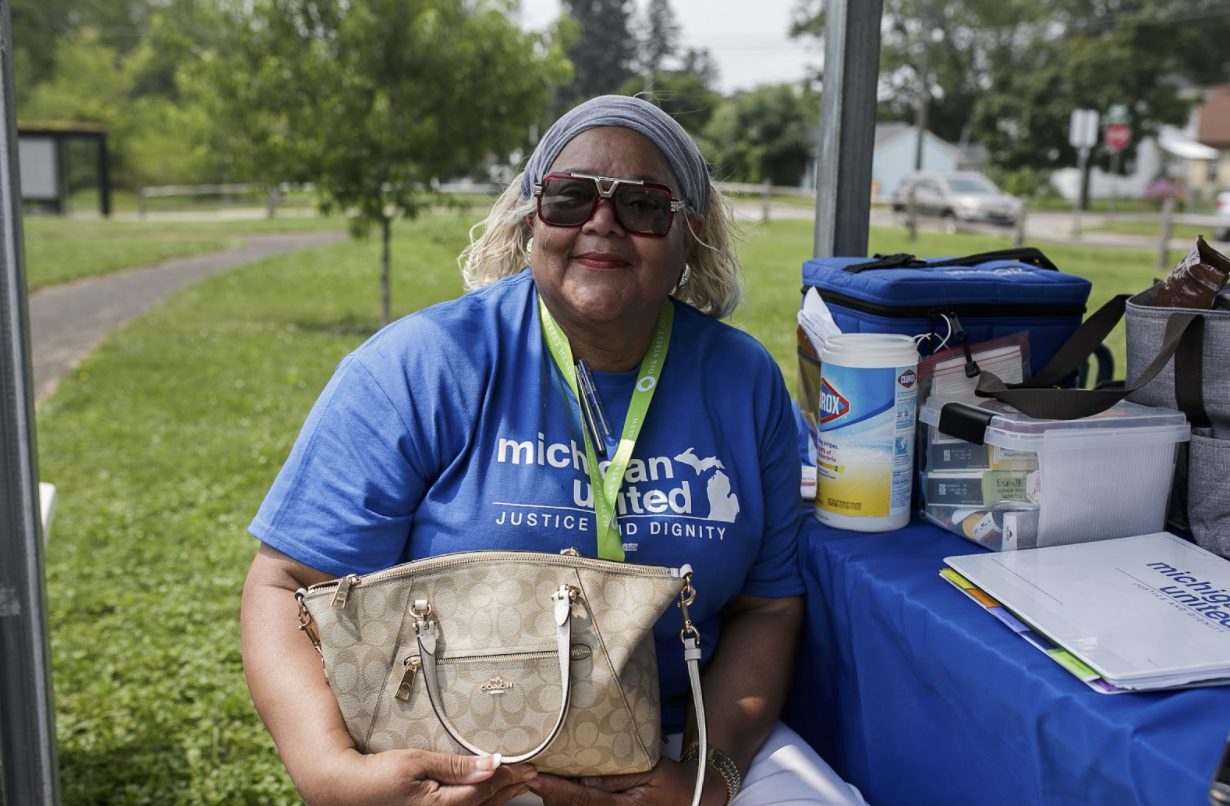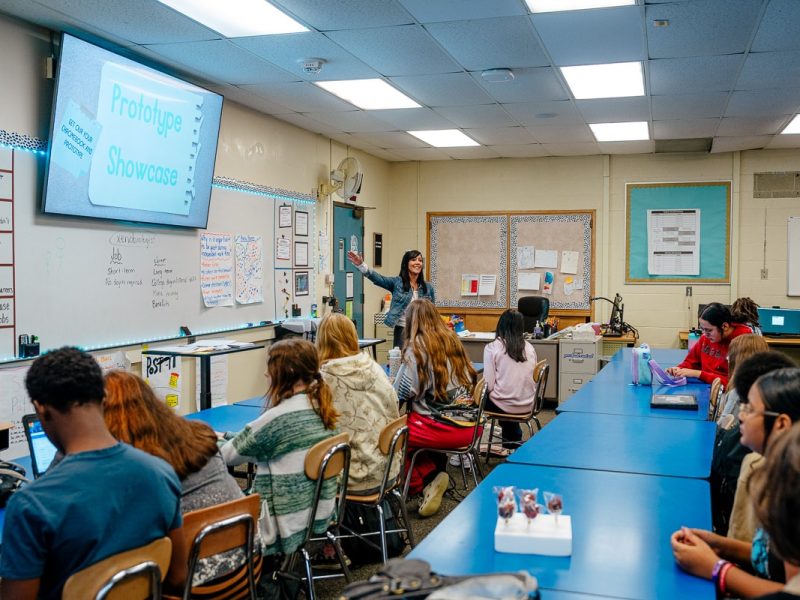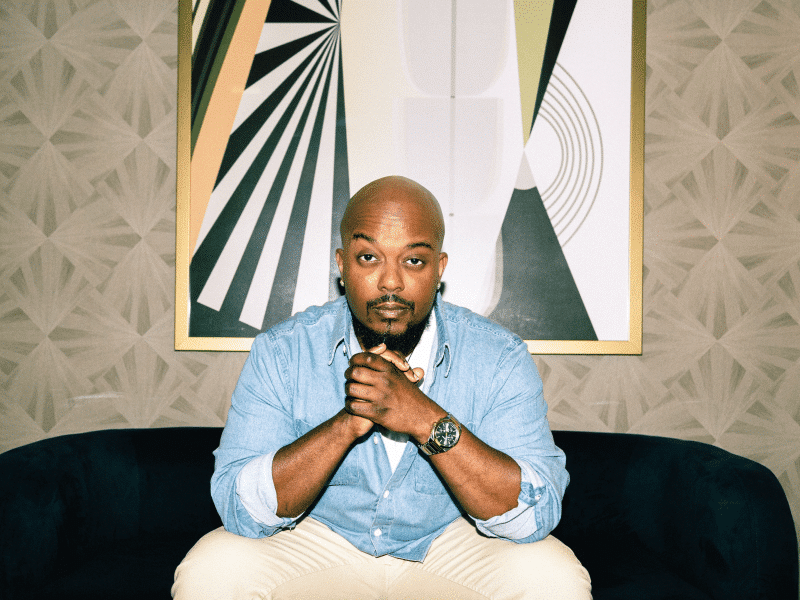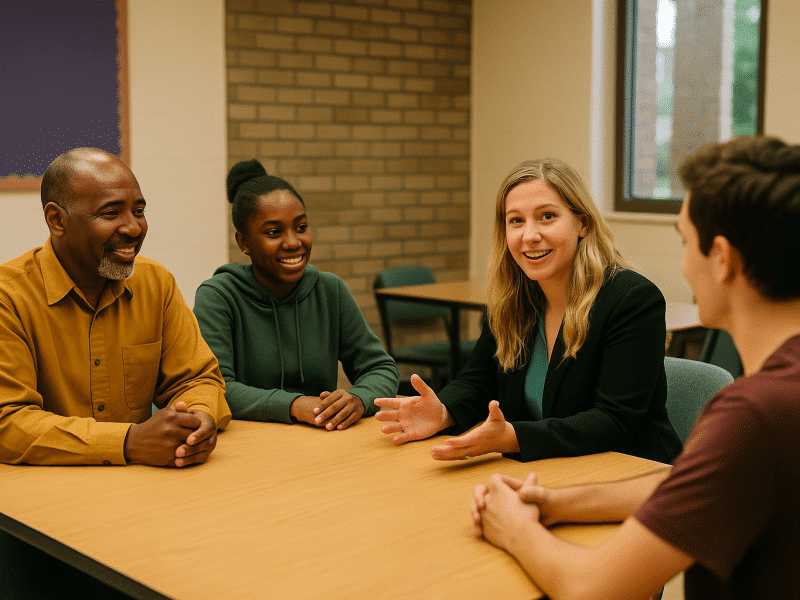For Michigan United, creating awareness of public health resources is a grassroots effort
Getting health and vaccine information directly to residents in neighborhoods is a critical part of Michigan United's work.

FLINT, Michigan — Health is local. To bring effective changes regarding health, the work starts at the neighborhood level. Michigan United, a nonprofit organization that fights for justice and equality, has partnered with the Genesee County Health Department to bring health navigators, vaccines, and education into several neighborhoods in Flint to remove barriers and access issues for residents.
Michigan United’s work in Flint has been supported by local funders and has grown tremendously over the last year. Originally the program had 11 health navigators in Flint and one coordinator. Now, Michigan United has 15 navigators in Flint, 15 navigators in Detroit, and two coordinators. The program’s leadership believes that reaching out to the community and asking what their needs are, not assuming what the community needs, will bring effective healthcare changes.

Latressa Gordon DNP, started volunteering as a public health navigator for Michigan United and the role evolved into being the nurse coordinator over the last year.
“We work with the health department to help get out vaccines, do mobile vaccine clinics, homebound vaccines, and education about vaccines,” she said. “We also connect people with other resources. As far as if they need information on tax information, notaries, food resources, and all those kinds of things … We connect you with other resources besides the vaccine.”
Gordon, like many people nationwide, lost a family member to the coronavirus this year, prior to vaccines being widely available.
“If I could do my part to get the vaccine out, to help get information out, to prevent another death, that’s my goal,” she said. “Everybody out here is like my family. We don’t push the vaccine on people, what we do is if you don’t want the vaccine, okay, we’re going to give you measures to help keep yourself safe. We will get you a mask, educate you on 6-feet distancing, get you hand sanitizer, and if you want the vaccine, we will point you in the direction and we’ll bring it to your home. Any way that you want the vaccine, we’ll connect you with other partners. We want to build the community’s trust because we are part of the community. The communities that we go in, we are part of.”
Gordon believes strongly that even if a vaccine is not distributed to anyone at a specific event, at least the community will recognize that they’re cared for with Michigan United’s presence.
“The value of community nursing is education and prevention,” she said. “Our goal is just to get the information out there. They’re showing that 99.5% of the people that were hospitalized or die recently were unvaccinated. And, you know, I’ve seen on the news that patients ask, “will you give me the vaccine?” when they’re about to get on a bi-pap or a breathing machine and it’s too late, you know?”
Joyce Ellis-McNeal, a Michigan United public health navigator coordinator, believes strongly in the work that she is doing with Michigan United but also thinks that an essential part of unifying the community is missing.

“The value of community is to serve and protect each other when everything else fails,” Ellis-McNeal said. “That’s when the community comes in. If we start talking about critical race theory teaching, it’s going to be one way to bridge that gap. You have got to give the community what they want. I hear CRT in the community a lot, then that’s the conversation that we should be having. Only I can teach you about Black culture and only you can teach me about you. Community gives a voice.”
McNeal mentioned that many Black residents have lost trust in “doctors, pastors, and engineers” because of various public health crises, and what we have left is the community to lift one another up. It is her passion to bring health, healing, and education to those around her.
“We are human,” she said. “I am kind to you because I have a contract with God and that contract states that I must love you because you’re human, not by income and not by right.”
Another Michigan United employee that has played an essential role in helping the Hispanic community and residents all over Flint is Aurora Sauceda. Sauceda is the manager overseeing Michigan United’s work in Flint and Detroit. She also understands the value of culture in recognizing and helping communities.
“The value of community is much bigger than any dollar system,” Sauceda said. “Our community has so much to offer. And culture, to me, means unity. It means caring for others, respecting each other, no matter what your status is economically, or what your religion is. Culture should just be humans loving other humans because we all have the same essential needs, food, housing, and health care. Culture is life, it is being able to live with each other in harmony. All sharing with each other what we have with each other.”
Sauceda has hopes that Michigan United’s work will grow in Flint and bring communities together by just being present and available. Her role as manager holds incredible responsibility, but the work doesn’t scare Sauceda.
“I’m willing to take the challenge just because I want to see the program grow,” she said. “I want to see our community people have jobs that mean something to them. The passion is great. I see all my navigators work with such commitment.”






